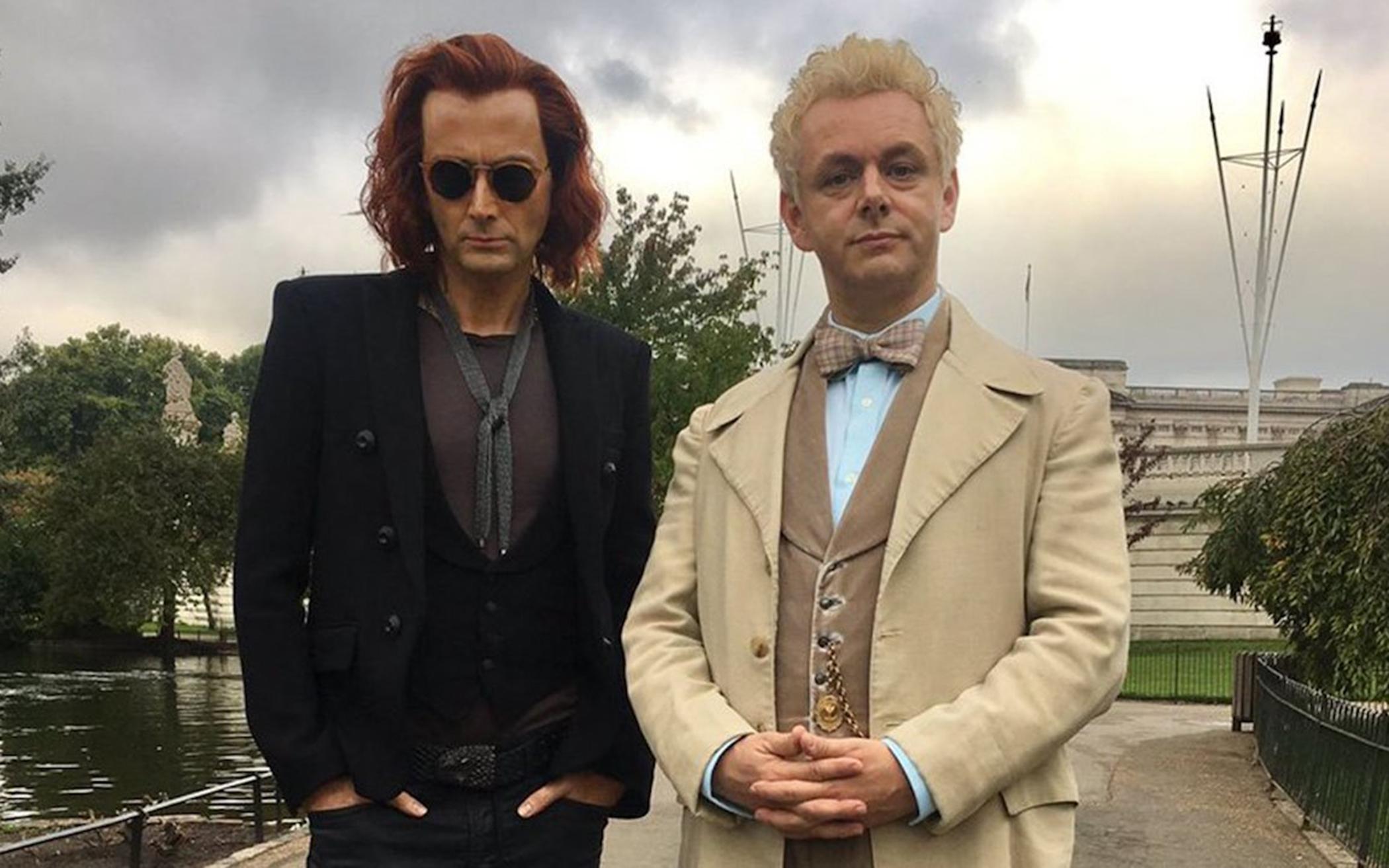Clever, and so, so funny, Good Omens is a true jewel in Amazon’s Original crown. The high production value is displayed in luminous graphics, witty writing, and perfect casting.
David Tennant saunters on screen as the Queen-singing, vintage-car-driving demon, Crowley. Michael Sheen endears with overflowing empathy and relatable indecisiveness as the angel Aziraphale. Both have been on earthly assignment for their respective “head offices” since The Garden, developing human tastes (Aziraphale’s rare bookshop is book-paradise) and human weaknesses (Crowley’s laziness in accomplishing his dark missions might even save him). These unlikely best friends band together against the armies of heaven and hell to stop the apocalypse and save humanity.
The six-episode miniseries seamlessly translates Neil Gaiman’s foreboding sense of mystery and Terry Pratchett’s whimsey to the screen. As in a Pratchett Disk-World novel, the opening narration “zooms-in” from the cosmic to the local. God (Frances McDormand), who, interestingly, never acts on screen, narrates in a female voice. As in Gaiman’s American Gods or The Graveyard Book, Good Omens cuts straight to the crux of the story by wrestling with arguably the two most controversial topics in Christian thought—the origins of life and evil—in the first six minutes.
The show is edgy, and perhaps a little bit off-putting to a Christian audience. Some viewers’ enjoyment might be clouded by moderate sprinkling of swear words, magic, and a few scenes of physical intimacy, all used for sometimes irreverent comedy.
However, the darkness is mostly grotesque (in one scene, a telemarketer is consumed by maggots), with periodic gothic tones, rather than graphics. The demons, rather than scary, are slimy, filthy, reptilian, an apt metaphor for their cruel and selfish natures and a strong contrast to Crowley who deeply cares about Aziraphale and humanity.
Making a satire of Christian mythology is bold. Because the show takes nothing seriously, it is best enjoyed by not taking it seriously either. The show borrows freely, but seldom faithfully, from Revelation and apocalyptic tradition. Supernatural forces are spiritual mostly in name; the things usually shrouded in the fantastical allegory are themselves allegories for the ordinary—silly angels and sympathetic demons symbolize humans, wills, follies and all.
David Tennant forms the show’s emotional axis. In a moment of despair, Tennant brings the desperation and agony of a Shakespearean monologue to a poignant, one-sided conversation with God. Crowley pleads for humanity, “Show me your great plan, I know you’re testing them, but don’t test them to destruction.” He receives no answer.
How rare and wonderful to have a story boldly engage with the inscrutability of God and authentic lament!
In the opening monologue, God says she is playing an “ineffable game of my own devising.” Throughout the series, the armies of heaven and hell eagerly await “The Great Plan.” But in the climactic moment, Crowley asks, “We all know what the great plan is, but what about the ineffable plan?”
Many readings of the apocalypse and allegorical fantasy stories represent good against evil dualistically, like two equally matched sides of a chess board. In contrast, Good Omens rests on the premise of an incomprehensible sovereign plan presiding over and beyond all forces, good and evil. So, despite all odds, and very odd they are indeed, perhaps Good Omens contains a nugget of theological truth, maybe even a Reformed one. (Amazon Original)
About the Author
Emily Joy Stroble is a graduate of Calvin College, art maker, mocha drinker, and reader of many books. A regular contributor to The Banner and perpetual student of the world, Emily lives in Grand Rapids, Mich.

